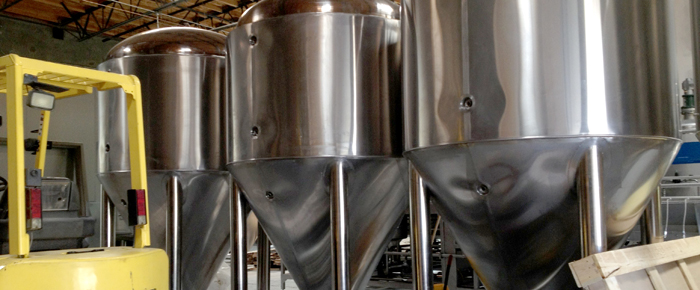
By Haddon Libby
I don’t know about you but the whole government shutdown, debt limit manufactured crisis was like white noise to me. I didn’t want to hear about it as it aggravated me and proved that our two party system is completely broken with a gaggle of ‘leaders’ who do not care about us. Meanwhile, newscasters treated the shutdown like a sporting event confusing news with entertainment. The whole thing proved a generally held belief that government has become an impediment to our nation’s economic recovery.
The government shutdown meant that the Alcohol and Tobacco Tax and Trade Bureau (TTB), a little known division of the Treasury Department did not operate. While the workers were paid for staying home, applications for new flavors and seasonal beers built up. An approval process that typically took three months before the shutdown is now expected to take longer. This hurt small breweries during one of their busier times of the year and served to have a dampening effect on job creation in this fast growing segment of our economy.
Tony Magee, owner of Lagunitas Brewing Co. expressed the rage of many microbreweries in this Twitter post: “(Expletive) Feds are gonna shut down the already incompetent Gov while hundreds of small breweries, including us, have labels pending. Nice. Wanna regulate? Perform or get out of the way.”
When local brewery, CV Brewery, was working on opening their plant earlier this year, they regularly faced a slow and arcane approval process that delayed their opening by well over six months.
Despite government delays, CV Brewery is a great example of what has been happening nationally since In-Bev and MillerCoors went on acquisition sprees creating a near duopoly in the beer industry – an explosion of new beer breweries. So many new breweries have been added over the last few years that the United States has more beer brewers in operation (over 2,000) than at any point since the 1880s! As In-Bev and MillerCoors grew to collectively control a 75% market share, these craft brewers grew from less than a 2% market share to 6% at present with expectations for 10% of all beer sales within the next three years.
To understand the economic impact that these microbreweries can have on our economy, we need look no further than San Diego. Of San Diego’s 50+ breweries in operation, most have come into existence over the last three years. According to the Institute for Policy Research, there are more than 3,000 jobs in San Diego County that have been created through the growth of this business segment representing approximately $700 million in sales and over $300 million of direct, local economic impact. These breweries have also spurred tourism year-round with particular value to the local economy during off-peak tourism months. The value of the tourism breweries drive to San Diego was not measured by the Institute for Policy Research but is considered significant and in excess of the annual Comic-Con Convention – considered to be one of the top events in the county in terms of economic impact.
While beer has the potential to be an important economic driver to our local economy, another business type currently banned and illegal in our county can create as much if not more in local economic impact – food trucks. Legislation is currently in front of the Board of Supervisors in Riverside with a vote planned for November 5th. More on that next week.
As Abraham Lincoln once said, “I am a firm believer in the people. If given the truth, they can be depended upon to meet any national crisis. The great point is to bring them the real facts, and beer.”












































